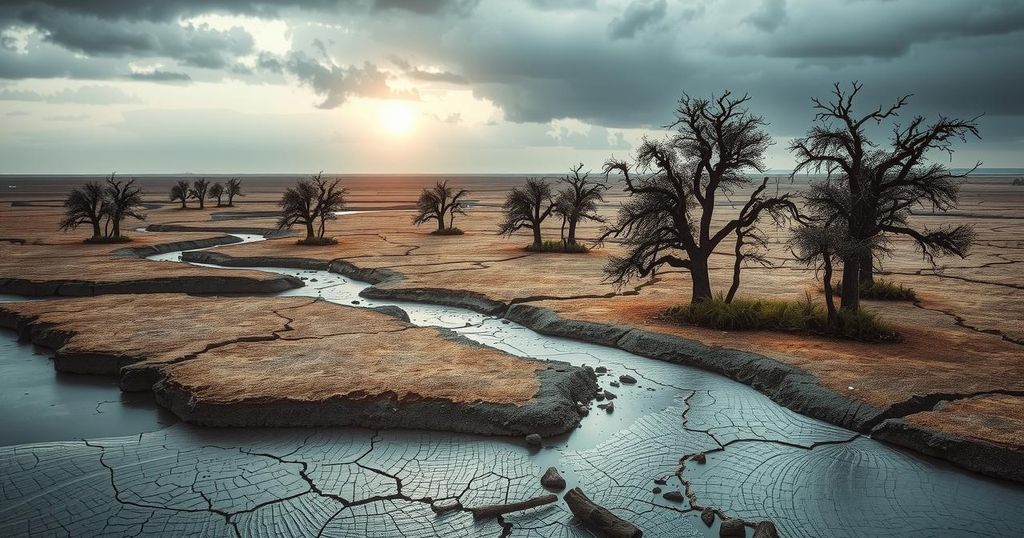UN Rights Chief Issues Urgent Call for Action Amid Escalating DRC Violence

UN rights chief Volker Türk expressed grave concerns over escalating violence in eastern DRC due to the M23 offensive. Nearly 3,000 deaths have been reported since January, as hostilities exacerbate the humanitarian crisis, leading to large-scale displacements. The international community is urged to intervene, condemning external military support for armed groups and underscoring the urgency for humanitarian access and protection of human rights.
The UN human rights chief, Volker Türk, voiced significant concerns regarding the escalating violence in eastern Democratic Republic of the Congo (DRC), primarily attributed to the Rwanda-supported M23 offensive. In a briefing at the Human Rights Council in Geneva, he warned, “If nothing is done, the worst may be yet to come, for the people of the eastern DRC, but also beyond the country’s borders.” Since late January, nearly 3,000 fatalities and over 2,800 injuries have been reported due to M23 attacks, which have included the use of heavy weaponry in populated areas.
The conflicts have further devastated the mineral-rich eastern regions, which have long been plagued by violence. Following the M23’s seizure of strategic territories in North Kivu, including areas near Goma, the humanitarian conditions have deteriorated sharply, leading to mass displacements. A draft resolution was circulated that condemned Rwanda’s military backing of the M23 group and called for an immediate cessation of hostilities and improved humanitarian access.
Tragic incidents, including the bombing of two hospitals in Goma, have compounded the crisis, resulting in civilian casualties among patients. On the same day, a mass prison break saw numerous female inmates attending reportedly rapes and subsequent deaths in suspicious circumstances. Mr. Türk expressed his horror at the escalating sexual violence prevalent in the conflict, warning of its likely increase amidst ongoing instability.
Evidencing the dire situation, Bintou Keita, the UN peacekeeping chief in the DRC, remarked that dead bodies remain visible in Goma and highlighted the forced recruitment of youth. She outlined that civil society members, human rights defenders, and journalists face significant threats while urging the international community to prioritize humanitarian assistance, particularly concerning rising health risks like cholera amid ongoing violence.
In response to these crises, DRC’s Minister of Communications and Media criticized ongoing support, financial and military, provided by nations like Rwanda to armed groups within DRC. He asserted that Rwanda’s interventions have perpetuated over three decades of violence, often centered around the exploitation of critical mining resources. Conversely, the Rwandan Ambassador attributed the conflict to a perceived imminent threat from armed coalitions backed by Kinshasa, citing a stockpile of weapons aimed at Rwanda.
Mr. Türk called for a comprehensive international approach to understand the intricate political and economic contexts behind the conflict, stressing, “The population in the eastern DRC is suffering terribly, while many of the products we consume, such as mobile phones, are created using minerals from the east of the country. We are all implicated.”
In summary, the situation in the eastern Democratic Republic of the Congo remains critical, with escalating violence driven by the M23 offensive. The international community is urged to take immediate action to address human rights violations and provide essential humanitarian assistance. The persistent support for armed groups complicates the conflict, emphasizing the need for a coordinated response that acknowledges both the humanitarian crisis and the geopolitical underpinnings of the violence.
Original Source: news.un.org








